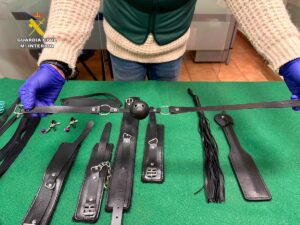
Flags, anthems, monuments… Normally, national symbols tend to be embodied in hyperbole, in a grandiose and epic object. However, in many cases, they fit something as everyday and small as a plate. Food can be a mirror of identity and a diplomatic tool. This is what gastronationalism advocates, the use of food as a symbol or tool to build or strengthen national identity. In a polarized context, in which different parties seem to have appropriated traditional national symbols, paella, tortilla (with and without onion) and croquettes could be the only patriotic elements capable of bringing an entire country together. Even represent it.
“Food is a culture and all cultures generate identities,” explains Cecilia Díaz Méndez, professor of sociology at the University of Oviedo and director of the Socialimen food sociology research group. According to the sociologist, food goes unnoticed in everyday life; but in contexts of migration or cultural diversity, food becomes a clear indicator of belonging. This is why immigrant neighborhoods are full of restaurants typical of their homeland and shops selling exotic foods.
As Palestinian chef Reem Kassis recalls in her book The Palestinian table“For immigrants with tenuous ties to their homeland, food can be an especially meaningful substitute for national identity. It certainly was for me.” We all need a place to store our absences, something physical and small to realize a much larger and immaterial feeling. Avoid. And that place is usually food.
“It’s a low-conflict element of identity,” says Díaz Méndez, “we are all cultural omnivores.” Modern society values the consumption of dishes from other cultures not as a comparison, but “as a sign of curiosity and also of social distinction”. And this is a rarity. Nationalisms have a certain antagonistic thrust. Both in a more extreme context, such as wars, and in a more relaxed context, such as sport, we start from a certain comparison. Boundaries work inside and outside: so that there is a usthere must be a They. But this doesn’t happen with gastronomy, where the important thing is not to compete but to share.
Multicultural neighborhoods like Lavapiés or Usera in Madrid perfectly exemplify this dynamic: restaurants created to serve migrants (Indians in one case, Chinese in the other) have attracted more and more residents and tourists to Madrid. The dishes were placed on the table with joy and naturalness. The situation would have been more complicated if instead of opening restaurants they had opened mosques or Buddhist temples. “Perhaps because trying foods from other cultures does not involve any comparison with one’s own culture,” reflects the expert. To worship Allah you have to renounce God, but fabada, hummus and tika masala They are not exclusive. They can complement each other, without any problems other than indigestion.
However, food’s ability to build an identity without comparison has its limits. “Gastronationalism emerged in the 1980s and 1990s as a response to globalization,” explains Óscar David Gomes, a political scientist and culinary researcher at the Basque Culinare Center. “And that’s okay, it’s important that cultures resist homogenization.” But in recent years, the expert warns, even far-right movements are trying to find a fight at the table.
A good example was offered by the Italian Matteo Salvini when in 2019 he denounced chicken tortellini. The Curia of Bologna had prepared them for city festivals as an alternative to pork tortellini for Muslim citizens. “They are trying to erase our history, our culture,” said the leader of the far-right La Liga party. This is a recurring concern. In far-right circles the question “do you eat ham?” ask, in the aftermath of a news story, if the perpetrator of a crime is Muslim. In this way culinary customs try to become something that differentiates us. But despite these attempts, the political and ideological potential of gastronomy makes it perfect for building bridges between cultures.
The power of gastrodiplomacy
Óscar David Gomes has just published a study in the scientific journal Borders. The political scientist studied 100 years of diplomatic menus in Portugal, to analyze how this country has used its gastronomy as a diplomatic weapon, a delicious way of telling the world. And it is striking to note that this is a recent idea. Until the 1980s, the common gastronomy of the embassies was French. But 40 years ago the local product began to be praised and little by little the popular recipes reached the most luxurious tablecloths. “Their findings can be extrapolated to many surrounding countries in southern Europe,” explains Gomes, who has been studying for years how his country takes care of (or neglects) its culinary heritage in its embassies, national airline or kitchens.
Guillaume Gómez, responsible for the cuisine of the Elysée from Chirac to Macron, summed it up with a precise phrase: “If politics divides men, good food unites them”. It is not in vain that France was one of the first states to realize the power of food as an element of daily life soft power (the ability of a country to influence others through attraction, not force) and in talking about gastrodiplomacy. But it was Thailand that was the first to demonstrate its power.
In the early 2000s, the Thai government created a program to promote Thai cuisine through certifications, grants, visa programs, and training programs. In just a few years the number of Thai restaurants in the world has doubled and the pad thai It has become one of the most famous dishes in the world. These initiatives were part of a set of tools that contributed to the growth of tourism in the country. Between 2001 and 2019, the number of visitors to Thailand rose from 10 million to nearly 40.
Gastrodiplomacy, explains Gomes, can be a defense of one’s identity. “For example, when Felipe VI came to Portugal in 2016, he was given a plate with Presum de Barrancos (a Portuguese ham). It’s a way of saying, look, we also have ham, it’s better than yours,” he comments amused. It’s a sort of pleasant competition that is resolved by sharing delicacies and a tablecloth. Few disagreements are so happily resolved.
“Our gastronomy is one of our best resources and strengths for creating our image and reputation abroad,” explains Arancha González Laya, Minister of Foreign Affairs, the European Union and Cooperation, in the Guide to Gastronomic Diplomacy published by his ministry last year.
Gomes believes this is true across the board. Diplomatic evenings, business lunches or dinners to meet the in-laws. “Cooking allows this type of dialogue, of narration. Between meals, stews and desserts, the differences are attenuated, conversations are generated and complicity is generated, both at the family table and at a state banquet. Gastronomy thus becomes an element of identity that escapes from epic patriotisms. An element that serves to share one’s identity with strangers. And also to discuss. But few nationalist discussions can claim to be resolved by closing the opponent’s mouth with a good plate of ham.




